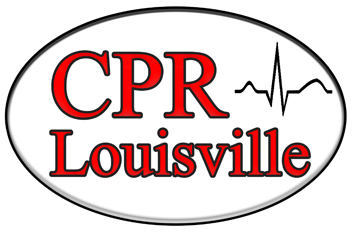Pediatric patient care presents unique challenges. Children, with their varied physiological responses and smaller anatomical structures, require specialized medical attention, particularly in emergencies. Pediatric Advanced Life Support (PALS) certification has become essential for healthcare professionals working with children. It provides the knowledge and skills needed to manage critical emergencies and potentially save lives. This article explores the impact of PALS certification on pediatric patient survival rates, demonstrating its importance and advocating for its widespread adoption.
Understanding PALS Certification
PALS certification is a structured training program designed to prepare healthcare providers to handle pediatric emergencies effectively. It encompasses a wide range of topics, including airway management, resuscitation techniques, and pharmacology. The primary objective of the course is to ensure healthcare professionals are equipped to quickly recognize and manage life-threatening situations in pediatric patients. It is intended for those who work with children in clinical settings, such as physicians, nurses, paramedics, and emergency medical technicians.
The Impact of PALS Certification on Pediatric Patient Survival
The impact of PALS certification on pediatric patient survival rates is profound. One of the key benefits is the ability to identify and manage emergencies such as respiratory distress, shock, and cardiac events. These are critical conditions where immediate and appropriate intervention can mean the difference between life and death. PALS training teaches providers how to assess these situations accurately, determine the appropriate interventions, and implement them swiftly to stabilize the patient.
A standardized approach to pediatric resuscitation is another significant advantage of PALS certification. The course emphasizes the use of structured algorithms and protocols, ensuring a consistent and efficient response to emergencies. This standardization facilitates better teamwork and communication among healthcare professionals, which is crucial during high-stress situations. With everyone on the same page, the chances of successful outcomes increase.
PALS certification also enhances the confidence and competence of healthcare providers. Regular training and skill reinforcement allow professionals to practice their techniques and stay updated with the latest medical advancements. This ongoing education helps them feel more prepared to handle emergencies, even under pressure. As a result, they can act more decisively, providing better care for their pediatric patients.
Challenges and Limitations PALS Certification
Despite its benefits, there are challenges and limitations associated with PALS certification. Accessibility and availability of training programs can be a barrier, particularly in rural or underserved areas. The costs involved in obtaining certification and maintaining it through recertification can also be prohibitive for some healthcare professionals. Additionally, continuous education and skill maintenance require time and resources, which can be challenging for busy medical practitioners.
To address these challenges, there are several recommendations and future directions to consider. First, healthcare institutions should encourage the widespread adoption of PALS certification among their staff. This commitment to pediatric patient care demonstrates a dedication to high-quality service and can improve overall patient outcomes. Integrating PALS training into healthcare curricula is another step that can help ensure new professionals enter the field with the skills they need. Collaboration and knowledge-sharing among healthcare facilities can also play a significant role in promoting best practices and overcoming accessibility barriers.
PALS certification plays a crucial role in enhancing pediatric patient survival rates. By providing healthcare professionals with the skills and knowledge they need to manage emergencies effectively, PALS certification can save lives and improve patient care. Healthcare providers and institutions should prioritize this training, and efforts should be made to make it more accessible and affordable. If you are a healthcare professional working with pediatric patients, consider pursuing PALS certification—it could be the key to saving a child’s life. For healthcare institutions, promoting PALS training among your staff is an investment in the future of pediatric patient care. Take action today to improve the chances of survival for your youngest patients.
Conclusion
In conclusion, enhancing pediatric patient survival rates hinges significantly on the expertise and readiness of healthcare providers. PALS certification plays a critical role in equipping medical professionals with the skills needed to respond effectively to pediatric emergencies. By staying updated with the latest protocols and techniques, healthcare providers can make life-saving decisions that improve outcomes for their youngest patients.
If you are a healthcare provider dedicated to making a difference, now is the time to act. Enroll in CPR certification in Louisville and ensure you are prepared for any emergency. Whether you’re looking to enhance your skills or meet professional requirements, obtaining your PALS certification in Louisville is a vital step toward improving patient care. Don’t wait—take the initiative to enhance your knowledge and skills today. Visit CPR Louisville to learn more about the available courses and take the first step towards becoming a more competent and confident healthcare provider. Your commitment to education and preparedness can make a life-saving difference.





